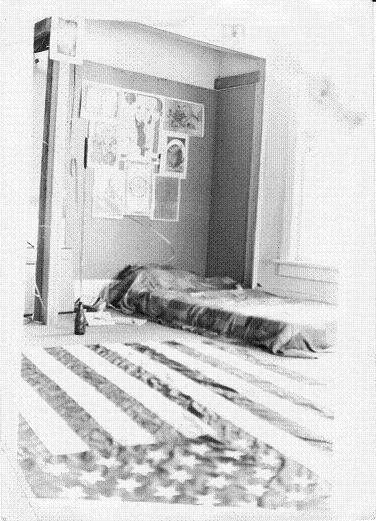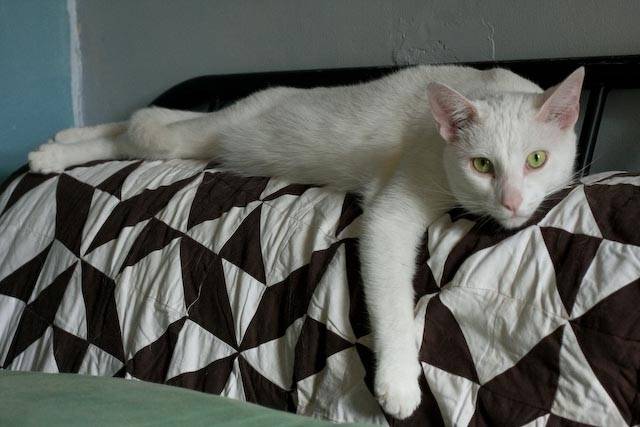 Neither Jesus nor Lao-tse were writers. The 81 verses attributed to the first Taoist may have been spoken by him, but not put to paper by him. They didn’t really have paper. Jesus may not even have known how to write his name. I never think of Jesus sitting at the table, pre-Last Supper, taking notes or drafting any sequel to the Sermon on the Mount.
Neither Jesus nor Lao-tse were writers. The 81 verses attributed to the first Taoist may have been spoken by him, but not put to paper by him. They didn’t really have paper. Jesus may not even have known how to write his name. I never think of Jesus sitting at the table, pre-Last Supper, taking notes or drafting any sequel to the Sermon on the Mount.
Although these two inspirations for this column didn’t own pen or keyboard, they are the primary influences in my life, men who lived thousands of years ago and whom I know primarily because of writing.
I am a writer. This is no boast or shamefaced confession. My mind thinks in writing. I believe it always has. It edits itself as it goes. This is not a fate I would wish upon anyone else, but I cannot imagine any other for myself. Every time I try, the exercise becomes the stuff for a new column, an idea to exploit yet again, in print.
Old notebooks in my closet, dusty and faded, reveal, embarrass, and surprise me every few years when I check them out. There are the carefully bound diaries from 1967, coded and earnest. Poetry bound in multiple volumes from the post-hippy 70s: Pariah Alchemy, Pariah Vengeance,The Ocean in Illinois, Dry Heave Mass, and others.
That’s last one, also called Dry Heaves for the Masses, was my first attempt at an actual book. One section was published in the literary journal at Northeastern University. It was a chronicle of life on a farm commune in 1971.
Those were intense do-it-yourself years. I set up a dark room in the basement of the farmhouse. We brewed our own beer. We grew green beans. Friends from Chicago came down and crashed on weekends. We jammed blues badly, listened to Quicksilver Messenger Service, read Mother Earth News and talked about self-sufficiency after the revolution.
I made mimeograph copies of Dry Heave Mass, stitched the pages together, and hardbound the books with cardboard, covering them with various fabrics, including fake leather. My first real book. I still have half a dozen copies on my shelf.
Despite this hardbound volume, my writing is not for the ages. I am not sure I would like scholars hence to ponder over my epic poem about the impeachment of Bill Clinton on the eve of Y2K (“The Last Sainthood“) or to evaluate the collected movie reviews that ran in the Daily Illini to Variety and literally every kind of publication in between, And there was the time my byline ran in The National Enquirer.
A computer book I wrote was published, but Dilithium Press went out of business the week after it went to press. There are copies of that on my shelf as well. I was able to make my living from writing for enough years that I didn’t take on an actual 40-hour-a week job until the year I turned 40. It was a job as a writer for an ad agency and it lasted one year. Story of my life. My real jobs never last long.
Next month marks the one-year anniversary of this column, Chuang-tse Meets Jesus, in Smile Politely. I’ve written over 40 columns, more than enough to compile as an ebook for your Kindle.
I once was interviewed by Creem Magazine in Birmingham, Michigan, outside Detroit, for the position of editor of a new magazine in the works, a publication to preview and review the new post-Pong, Pac-Man and Centipede-era video games. As the Creem publisher drove me from the airport, he talked about writing.
“I enjoyed writing,” he said, “but there just wasn’t any money in it.” I shrugged. It was what I did. And they decided to edit Vidiot, as the short-lived glossy later was named, in-house. I became the primary contributing writer, testing games and churning out reviews month after month. And you know what? There wasn’t any money in it. It was a decent gig, while it lasted. I was the Vidiot writer.
What I am trying to say, rather long-windedly I’m afraid, is that I have long known and accepted the temporality of the writing game, my writing at least, that these words are as temporary and timely and tissue-thin, as lonesome and lost, as Friday’s footprints in the sand.
This will be my final column of Chuang-tse Meets Jesus for a while. I’m assigning myself a six-month sabbatical.
It isn’t that I’ve run out of topics. That is hardly the case. The problem is entirely the opposite. The last several columns have been a real struggle to confine to a single topic. They meandered wildly across the map, combining self-analysis with political grumbling, religious pomposity with theatrical allusions, sometimes pasted together with the most tenuous of connections. I even had Yoda speaking in limericks a few columns back.
The columns I recently wanted to write — and which very nearly turned up this week — included 1) how to meditate, written in the freeflowing mindless style of an actual TM meditation, 2) my own paid for and pre-written obituary for the News-Gazette, 3) how Obama on the Sunday morning talk shows delegitimized Fox, 4) why French absurdist theater is making a needed comeback, and 5) what has become of Christianity in Iraq since the U.S. invasion. If you need ideas, take some. There’s more where those came from.
What can I accomplish in six months? I am attempting the following.
1) I am Kindle-izing some of my existing works, including the heretofore unpublished book Two Weeks in Guatemala with Ernie. Perhaps I’ll make that into an audiobook as well. I’ve talked to a local actor about that.
2) I’m looking back at previous technologies for writing. This column was hand-written in a new spiral bound, 80-page ruled notebook I bought at Meijer last week, using a Papermate erasable pen. The process reminded me of how I used to write with my cherry red IBM Selectric II. I’ve always praised word processing, but now, I’m ready to look backwards. I’m nostalgic for typewriters, fading ribbons and all.
3) I’m going to finish Zombies of Jesus (working title). It is a book I’ve been writing for the last five years, about the East Bend Mennonite Church and how it has become a cult of nationalism, hypnosis via spam, and potluck dinners.
I’m almost certain that Zombies of Jesus will not turn out to be my Moby Dick. But I will have it and hold it in some way, in print, or in ebook, or just printed out from the computer and lodged away in my closet. It will exist and, in time, it too will disappear.
Herman Melville died pretty much forgotten. Moby Dick wasn’t rediscovered and acclaimed until the 20th century. When Melville died in 1891, having spent 20 years toiling as a clerk, the New York Times wrote, “Years ago the books by which Melville’s reputation had been made had long been out of print and out of demand. He has died an absolutely forgotten man.”
To Melville, it was all the same at that point. For me, it will be as well. I write. That is enough, more than enough to be grateful.

Photo of Melville, P. Gregory’s deaf cat, by Erica Lee Petrie








